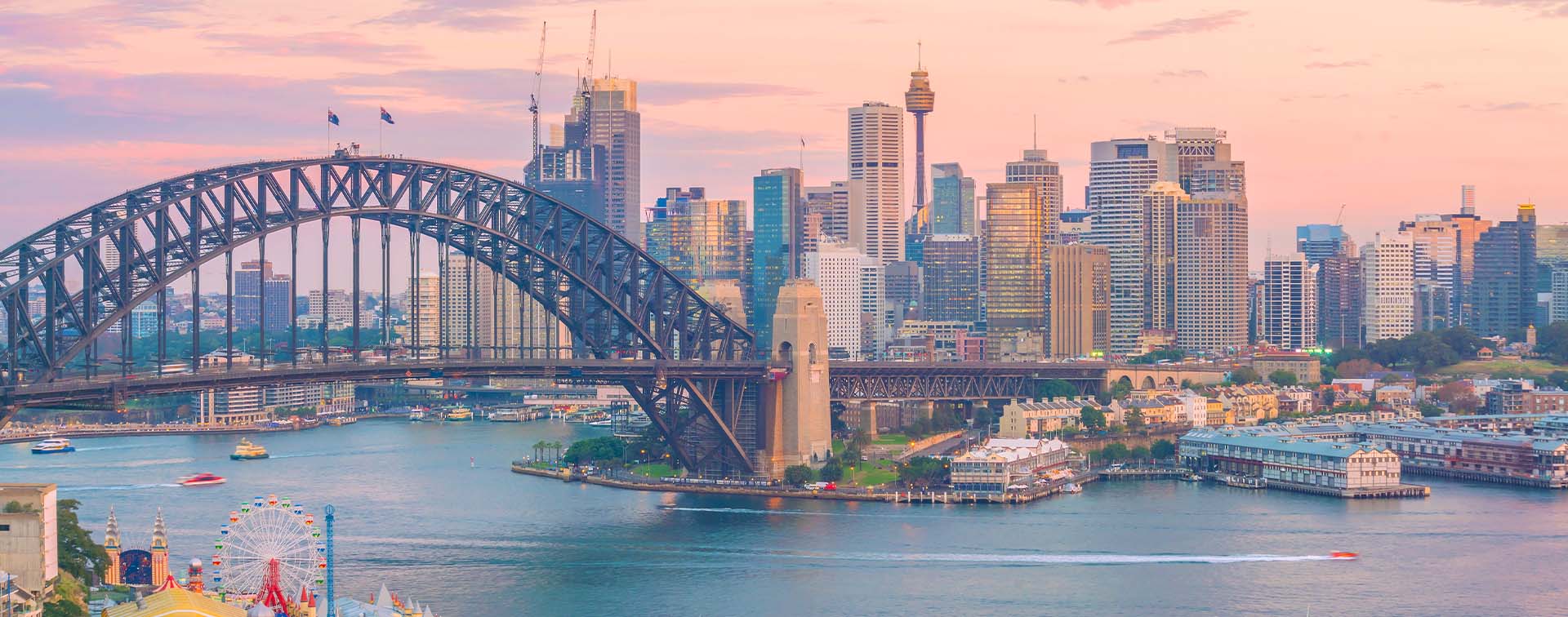
Oriel Morrison is one of Asia’s most well-known business journalists and has recently added company founder to her résumé. She hosts global conferences and events, and often speaks on topics including geopolitics, finance, markets, and news.
As 2022 kicks off, Australians and New Zealanders have faced nearly two years of Covid-driven border closures, living with some of the strictest border constraints in the world. For many, it has felt like a rollercoaster ride with no end in sight. The latest delay to a scaled reopening of borders was in early December 2021, due to the arrival of the highly contagious Omicron variant. This is not the first time that a new variant has caused concern, and it is probably not the last — an unwelcome reminder that unrestricted travel into the country may be some way off.
Still, overseas workers, student cohorts, and other visa holders were finally welcomed into Australia on 15 December 2021. The government, though, extended emergency powers through to February 2022, keeping in force mandatory mask wearing on flights and restrictions on travelers from high-risk countries. All this despite Australia having one of the highest vaccination rates in the world: 92% of Australians have had their first dose, and 87% are double vaccinated, above the rates seen in Britain, the USA, and much of Western Europe. Regardless, at the time of writing, Australian Prime Minister Scott Morrison remains non-committal, leaving the door open for further restrictions on international travel. New Zealand has meanwhile pushed back its phased plans to reopen international borders from 17 January 2022 to the end of February. The two countries are also pausing their quarantine-free travel corridor, all due to Omicron.

Members of the Australian government say they need time to better understand the efficacy of vaccines against Omicron, the range of illness the variant might generate, and the level of transmission.
And it is data related to these factors that will be essential to countries like Australia and New Zealand in considering border settings as the year progresses.
From 31 December 2021, Australian updates for New South Wales, South Australia, and Victoria have mandated that vaccinated international arrivals must get an approved Covid-19 rapid antigen test and self-isolate until a negative result. Some states require a second test around day six. Full 14-day quarantine requirements remain in place for those who are unvaccinated.
In Queensland, 14-day home or hotel quarantine is still required. Western Australia mandates 14 days of hotel quarantine with a number of mandatory Covid-19 tests and still plans to reopen its borders on 5 February 2022.
All international arrivals to Australia will require a negative PCR test. They must also complete Australian traveler declaration forms detailing their vaccination status and confirming they comply with public health requirements.
However, on the upside the delayed travel bubbles with Japan and South Korea opened in December 2021 and an air travel bubble was established with India.
A highly publicized visa cancelation put Australia back in the headlines in early January. Top rated tennis star Novak Djokovic had his visa revoked on arrival in Melbourne after the Australian authorities claimed he did not meet the necessary Covid vaccination entry requirements, putting his chance to play for a 10th Australian Open title in doubt. He was released from immigration detention after the federal circuit court quashed the visa cancelation on 10 January, but the government’s lawyer has warned that the immigration minister will consider using a separate power to cancel his visa. The tournament commences on 17 January 2022 and all eyes will be on Australia until then.
But it’s not just a popularity contest for Australia.
The consistent delaying of reopening borders has hurt Australia’s AUD 2 trillion economy — the return of foreign students alone is worth around AUD 35 billion. Enrolments from overseas continue to drop, and even though borders have recently opened to students, there are still roughly 130,000 students waiting to enter.
And it’s the outlay too. The government has committed more than AUD 33 billion in additional health spending since the outbreak of the Covid-19 pandemic.
For those visa holders wanting to stay in Australia, there is some good news. The government has added concessions for highly skilled migrant workers and skilled regional visa holders who chose to stay in Australia during the pandemic, improving access to permanent residence.
Students who have not been allowed in will be permitted to apply for a replacement visa, and their length of stay on temporary graduate visas will be increased.
For vaccinated individuals who are determined to enter Australia, it is not just any vaccine or number of shots that will qualify them for entry. Travelers must also show that they are fully vaccinated with a Therapeutic Goods Administration approved vaccine. These change from time to time but at the time of writing include two doses of AstraZeneca COVISHIELD, AstraZeneca Vaxzevria, BBIBP-CorV Sinopharm, Bharat Biotech Covaxin, Moderna Spikevax, Pfizer/BioNtech Comirnaty, Sinovac Coronavac, or one dose of Johnson & Johnson/Janssen-Cilag.
Anyone vaccinated in Australia can access an International Covid-19 Vaccination Certificate. Those vaccinated elsewhere in the world must provide proof from an accredited vaccination provider.
Despite the easing of border restrictions in Australia, a big question mark remains for 2022. On top of the concerns over potential mutations in the Covid-19 virus, it’s an election year in Australia.
Early last year, the opposition labor party accused the government of playing politics by delaying border openings. But there has been a change in sentiment, with more than half the country wanting restrictions to end when vaccination targets are reached.
The election date has not been set, but it must happen by March 2022.
Prime Minister Morrison says the fight against Covid-19 is no longer about case numbers, but about the severity of the illness and how the health system manages it.
The Australian Technical Advisory Group on Immunisation has reviewed booster timeframes and brought forward its booster shots by a month because of Omicron concerns. Adults can now get a third dose five months after their second shot, and Moderna has been approved to join Pfizer as a booster option.
The federal government is also talking with Pfizer and Moderna about the vaccine’s efficacy against Omicron. Both companies insist that they can move quickly if a new vaccine is needed.
So there is some light at the end of the tunnel. Experts say that given the amount of work that has gone into researching Covid-19, we are much better prepared to tackle new variants, vaccines are improving, and better treatments have been developed.
Here’s hoping borders will be open to everyone sometime in 2022.